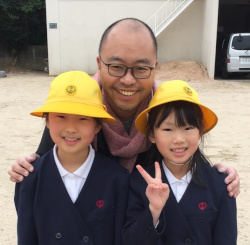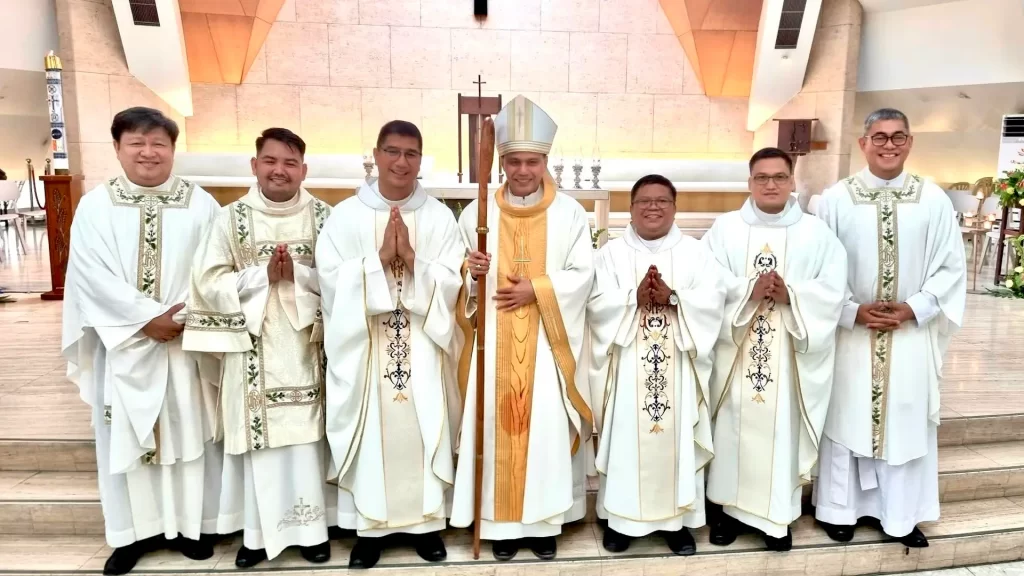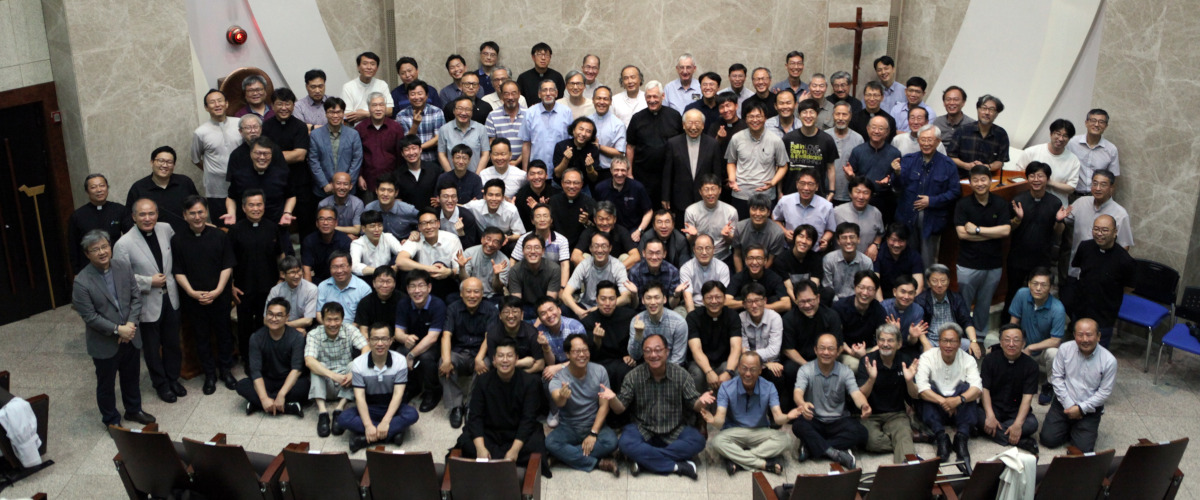
On July 15, Fr General met with Jesuits in Korea and approved 11 apostolic preferences of the Korean Province. These apostolic preferences will serve as a compass for the Province in its apostolic planning, implementation and evaluation in the next 10 years. They are the response from a long process of communal discernment to adapt the UAPs in the various contexts of Korea. The 11 preferences are the following:
(1) Establish a College of Ignatian Spirituality, which will provide courses in theory and practice for givers of the Spiritual Exercises as a means to organise and support Ignatian practitioners.
(2) Develop a formation programme for partners of Ignatian spirituality intended for young lay collaborators, professors and staff and students of Sogang University, collaborators in the spiritual apostolate, Ignatian collaborators in the mission of peace and justice and all collaborators in the Korean Province. The goal is to standardised the way we do Ignatian formation and to develop strategies for applying it to various objectives.
(3) Apply Ignatian spirituality to the reality of contemporary Korean society. A committee will be established to standardise Ignatian spirituality terms in Korean language and compile a dictionary of these and related terms to make them relevant to the present age and culture.
(4) Integrate the various individually prompted Justice, Peace and Integrity of Creation activities into an Official Action Arm of the Korean Province. The Jesuits involved in social services have responded to the complicated challenges of social issues with flexibility and spontaneity, but often rather single-handedly. The Korean Province is launching a new official arm under the Provincial to orchestrate and support their work.
(5) Establish social agenda and organise campaigns based on Ignatian spirituality. The Jesuit Research Center for Advocacy and Solidarity established in 2010 is substantially equipped with human and financial resources to actively draw up social agenda based specifically on Ignatian spirituality. The Province will responsibly organise further works in solidarity with non-government organisations and other institutions promoting various social movements.
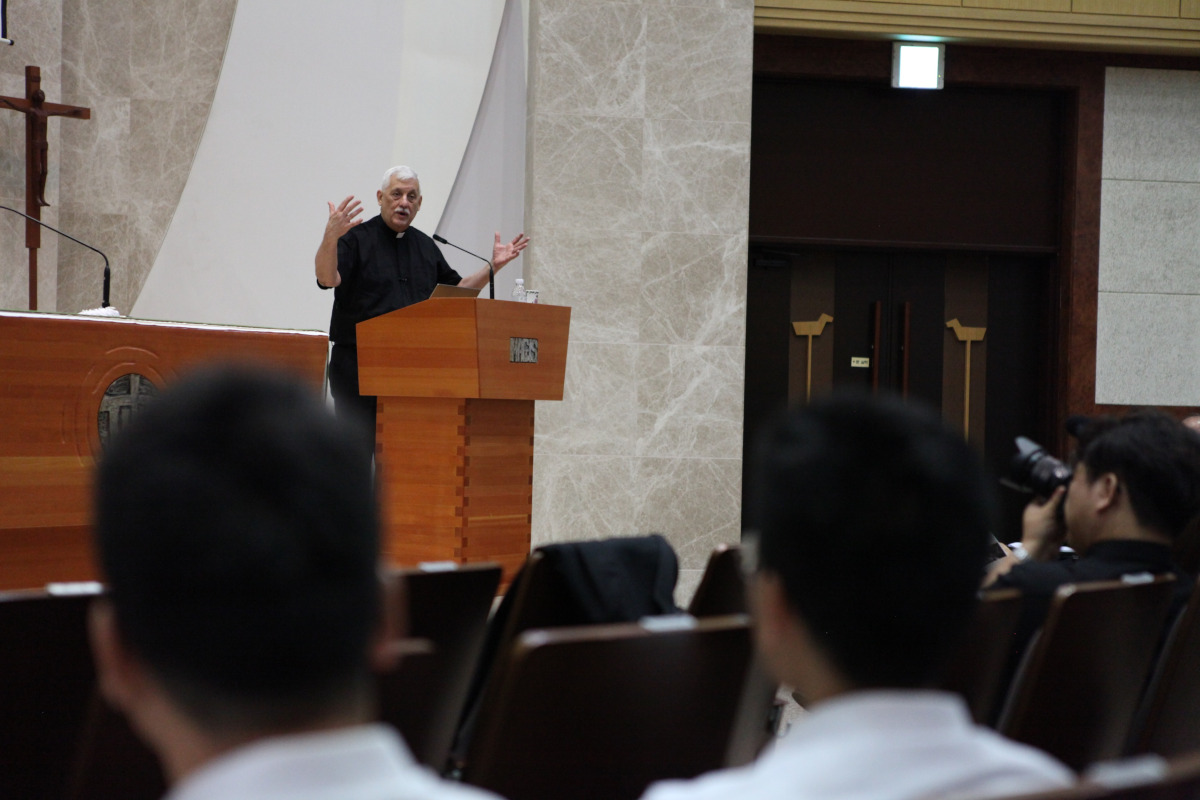
(7) Create a Spiritual Exercises table for the youth. The Province wants to empower young people to make and share the Spiritual Exercises with friends and provide them with clear guides, sound reading materials and simple procedures. We also want to develop the Spiritual Exercises in a way that matches and are in line with young people’s sense and sensibility.
(8) Create a spiritual media platform for young workers. New media technologies and social network systems should be exploited for their apostolic potential. They are a means to provide spiritual services to young workers who are vulnerable and can be easily marginalised in the process of social change.
(9) Establish a forum for Sogang’s rejuvenation. This will reassert appreciation of the special place of Sogang University in the Province’s apostolates and foster collaborative efforts and solidarity among Jesuits and our academic collaborators. We will endeavour to interpret cura personalis in terms of apostolic creativity and live out common discernment in dealing with the challenges facing Sogang.
(10) Cambodia Mission. Since 2005, Cambodia has been a mission given us by the Society. The Korean Province resolves once more to do its best in what the Cambodia Mission requests of us and constantly renew our mutual solidarity.
(11) Response to the aging. We want to encourage Jesuits who are physically getting older and weaker but spiritually deeper and wiser to continue to actively perform their endless life mission.
Fr General has said that the Province’s apostolic preferences show a positive sense of the next 10 years. The integration of the UAPs into the Province’s apostolic preferences is a sign that we are living in the same Spirit. He encouraged us to implement several projects in Cambodia and to embark on new adventures for the youth and young workers.
Fr General Sosa was also happy to know that the Province supports the mission of peace and reconciliation in the Korean Peninsula. He stressed that since General Congregations 35 and 36 the mission of reconciliation has become important for the Society as we continue to live in a world plagued by conflict. To show his support for the mission of reconciliation, he visited Panmunjom, the symbol of separation and conflict in the Korean Peninsula.
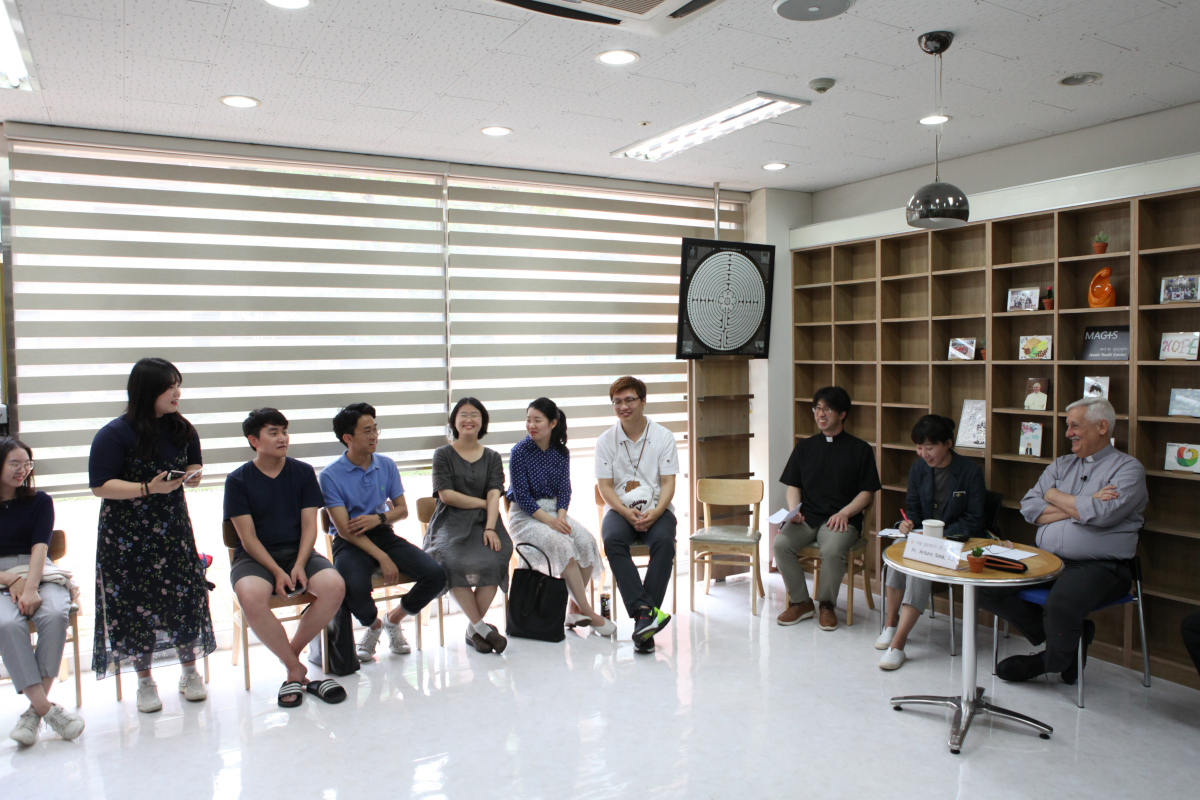
This sense of imitating Christ was what Fr General told the youth he met at the Jesuit Apostolic Center. When asked what a hope-filled future is like, he responded that it is about finding hope while embracing our pains and giving our life to others as Jesus did. Hope lies in our service to others, he said. He asked those who joined the Cambodia mission as Jesuit volunteers how their experience in Cambodia touched their life in Korea. One of the volunteers answered that she found a chance to dream of a new life which was not bound to competition, success and the standards of society, but one that is lived in service, accompaniment and commitment. Like Pope Francis, Fr General Sosa asked the youth for help in rejuvenating the church.
Fr General’s visit was a moment for us Jesuits, our collaborators, partners and friends to rethink our identity, vocation and vision for the Korean society. When Father General approved our response to the UAPs, he left us with several homework, an examen of the 10-year plan. Does the 10-year plan lead us to change any styles of life or work that hinder the renewal of the persons, communities and works committed to mission? If there were no Jesuits in South Korea, and if you were to imagine just arriving today, what would you see as the priorities for evangelisation? Are we friends in the Lord, as Jesuits in community? Are we friends with others with whom we share our mission?
It is too early to talk about the fruits of Fr General’s visit. We who are left behind should complete his journey through continuous reflection and discernment, and ongoing practice and commitment to our mission in order to see the true fruits of Father General’s five-day presence in Korea.

